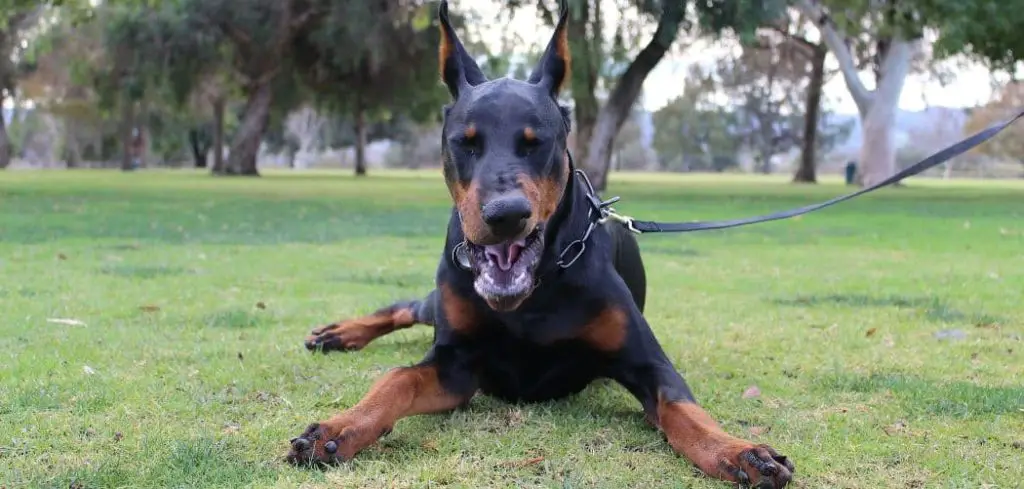When your dog is vomiting and refusing both food and water, it can be incredibly alarming. This combination of symptoms suggests that something more serious may be happening than a simple upset stomach.
We outline the common reasons why dog puking and not eating or drinking happens, what you can do at home, and when to seek veterinary help.
Dog Puking and Not Eating or Drinking — Why It Happens
A dog that is vomiting and also avoiding food and water may be experiencing pain, gastrointestinal distress, infection, or a more serious systemic illness. These symptoms often go hand-in-hand when a dog is too nauseous or unwell to maintain basic functions like eating or drinking.
Causes range from gastritis and pancreatitis to toxin ingestion, intestinal blockages, or even liver or kidney failure.
Dehydration is a major concern in dogs who vomit and refuse fluids, making timely care essential.

Common Causes of Dog Puking and Not Eating or Drinking
Gastritis
Gastritis, or inflammation of the stomach lining, is one of the most common reasons dogs vomit and refuse food.
It can be caused by dietary indiscretion—like eating garbage, spoiled food, or table scraps—or a sudden change in diet.
Affected dogs may vomit repeatedly, act lethargic, and have no interest in food or water.
Gastritis can resolve on its own in mild cases, but if it leads to dehydration, your dog needs medical help.
Pancreatitis
Pancreatitis is the inflammation of the pancreas and is a painful, potentially serious condition.
It can be triggered by fatty foods, certain medications, or occur spontaneously.
Dogs with pancreatitis typically vomit multiple times, refuse to eat or drink, and may hunch their back or show signs of abdominal pain.
Left untreated, it can lead to dehydration, systemic illness, and even organ failure.
Read more: Dog Keeps Throwing Up Water and Not Eating (What this could mean)
Intestinal Obstruction
A foreign object lodged in the intestines—like a toy, bone, or sock—can cause an intestinal blockage. This is a medical emergency.
Early signs include vomiting, refusal to eat, and no bowel movements or very small amounts of stool.
As the blockage persists, your dog will likely avoid drinking and become severely dehydrated and lethargic.
Kidney Failure
Acute or chronic kidney failure can make dogs nauseous, leading to vomiting and a loss of appetite.
In more advanced stages, they may also stop drinking water.
You may also notice bad breath, pale gums, increased or decreased urination, and extreme fatigue.
This is especially common in older dogs or those with preexisting health conditions.
Toxin Ingestion
If your dog has gotten into something toxic—such as chocolate, antifreeze, human medication, or certain houseplants—vomiting and refusing food or water may be the first signs.
Depending on the toxin, other symptoms like drooling, tremors, or seizures may also occur.
Immediate veterinary treatment is crucial in suspected poisoning cases.
Parvovirus (Especially in Puppies)
Parvovirus is a highly contagious and potentially fatal virus that affects mainly puppies and unvaccinated dogs. It causes severe vomiting, bloody diarrhea, and refusal to eat or drink.
Without intensive treatment, parvo leads to dehydration and shock. Any puppy showing these symptoms should be seen by a vet immediately.
What to Do If Your Dog Is Puking and Not Eating or Drinking
If your dog vomits once but seems otherwise normal, you can monitor for a few hours and withhold food temporarily.
However, if your dog continues vomiting or is uninterested in both food and water, don’t wait more than 12–24 hours to act.
You can offer small amounts of water or ice cubes to encourage hydration, but don’t force it. Avoid giving any medications without your vet’s guidance.
Try to assess if your dog may have eaten something unusual, had access to toxins, or is showing signs of pain or lethargy.
If your dog is a puppy, senior, or has an underlying condition, err on the side of caution and contact your vet sooner rather than later.
When to Call or Visit Your Vet
Seek immediate veterinary attention if:
Vomiting occurs more than twice in 24 hours
Your dog is refusing both food and water for over 12 hours
Signs of dehydration appear (sunken eyes, dry gums, skin not snapping back)
There is blood in vomit or stool
Your dog appears weak, lethargic, or in pain
You suspect toxin ingestion or a foreign object
Prolonged vomiting and dehydration can escalate quickly, so trust your instincts and don’t delay in calling your vet.
Read more: Dog Diarrhea and Not Eating (Causes and when to worry)
Key Takeaway
Vomiting combined with not eating or drinking is always a concerning sign in dogs. While some causes are mild, others can escalate dangerously without treatment.
Monitor your dog closely, offer hydration if possible, and seek veterinary care if symptoms persist or worsen. Acting early gives your dog the best chance at a full recovery.
